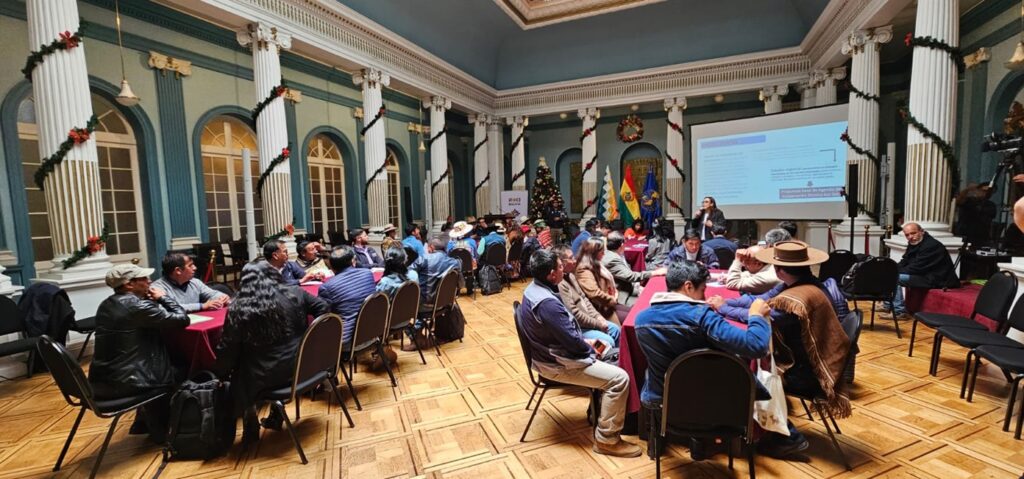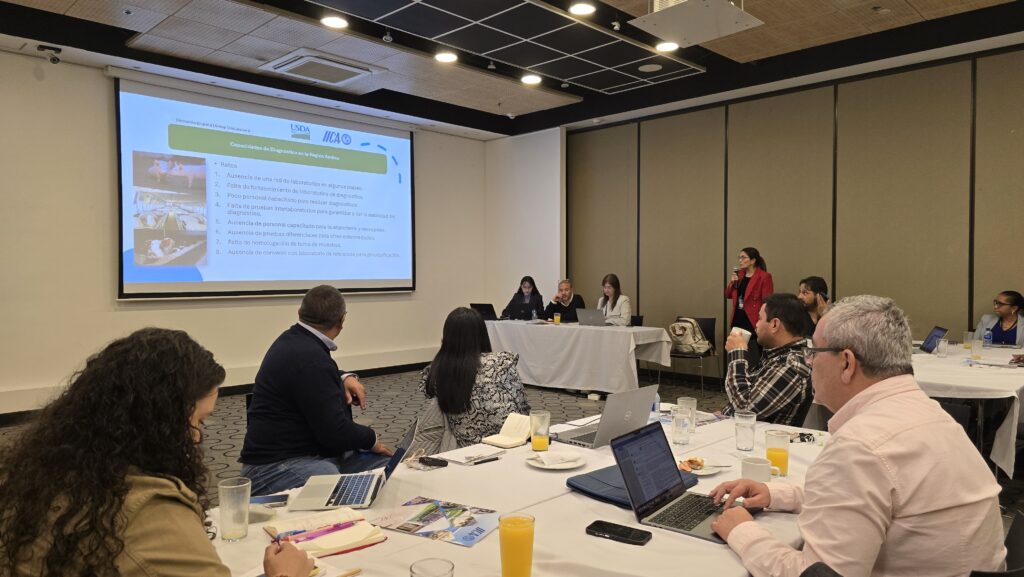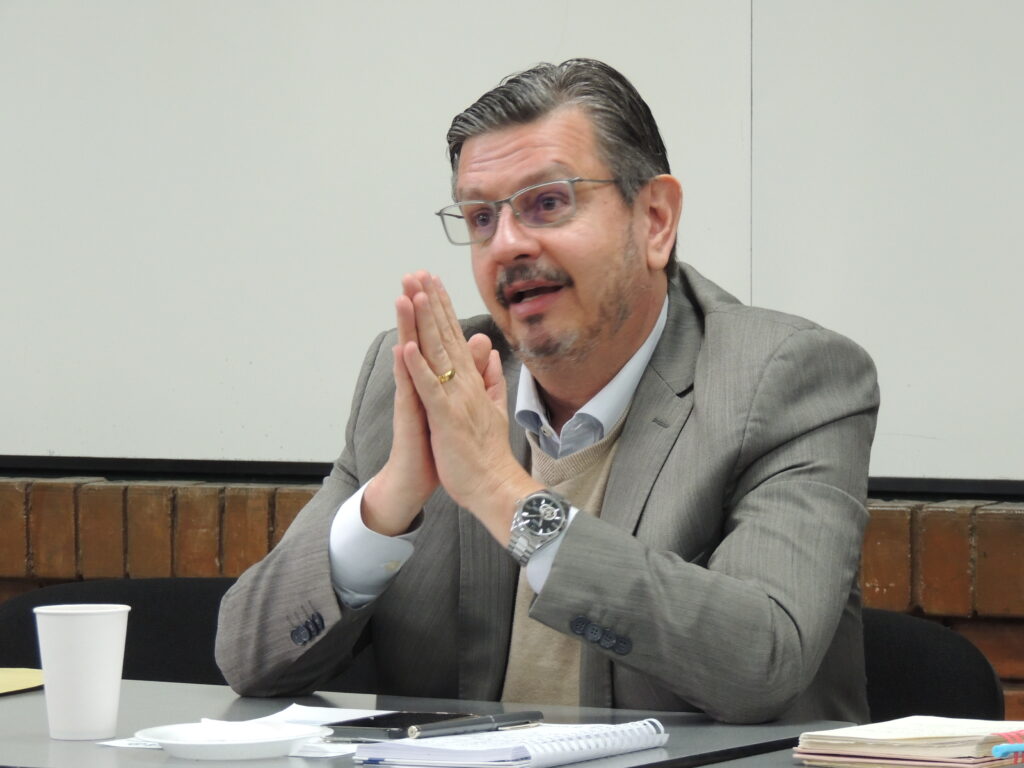La Secretaría de Agricultura y Desarrollo Rural de México (SADER) y el Instituto Interamericano de Cooperación para la Agricultura (IICA) coordinan una Acción Nacionalmente Apropiada de Mitigación para transitar hacia la ganadería bovina extensiva sustentable.
Ciudad de México, 28 de mayo, 2021 (IICA). La ganadería es fundamental para la seguridad alimentaria pues constituye el sustento y el patrimonio de gran parte de las familias del campo en América Latina y el Caribe (ALC), y de ahí la importancia de impulsar su sustentabilidad, productividad y competitividad y de realizar acciones para mejorar su acción climática en la región, coincidieron en señalar expertos convocados por el Instituto Interamericano de Cooperación para la Agricultura (IICA) y FAO en México.
Durante el encuentro “La ganadería, una oportunidad para potenciar la acción climática en América Latina y el Caribe”, realizado como evento paralelo de la Semana del Clima de ALC (organizada por la Convención Marco de las Naciones Unidas sobre el Cambio Climático), especialistas compartieron su visión sobre cómo la ganadería sostenible presenta una gran oportunidad para fortalecer la acción climática en ALC.
Uno de ellos fue Adrián Vega, subdirector de Estudios de la Flora y Suelos con Fines Pecuarios en la Coordinación General de Ganadería, de la Secretaría de Agricultura y Desarrollo Rural (SADER) de México, quien explicó que 56% de la superficie del país se dedica a la ganadería extensiva, además que la nación ocupa el séptimo lugar a nivel mundial en la producción de proteína animal y produce el 82.1% de los alimentos de origen animal que consume internamente.
La actividad, dijo, genera cerca del 10% de las emisiones de gases de efecto invernadero (GEI) del país y el 68% de las emisiones del sector agropecuario.
“Existe una oportunidad significativa para reducir las emisiones y por ello la SADER y el IICA, junto con otros socios, impulsan la transición de la ganadería extensiva convencional a una sustentable”, comentó Vega.
Esta transición se realizaría mediante la Acción Nacionalmente Apropiada de Mitigación, NAMA de Ganadería Sustentable y de Bajas Emisiones en Condiciones de Pastoreo en México (NAMA GS+México), en congruencia con el objetivo de mantener el calentamiento global en 1.5°C establecido en el Acuerdo de París y con el cumplimiento de las contribuciones determinadas a nivel nacional (NDC), agregó el especialista.
La NAMA GS+México busca reducir las emisiones de GEI en un 28%, contribuir a incrementar la productividad y competitividad del sector ganadero bajo un enfoque de cadena de valor, con criterios de sustentabilidad, inclusión y territorialidad, así como avanzar hacia la seguridad alimentaria, el crecimiento económico, la capacidad de adaptación al cambio climático, la conservación y aprovechamiento sustentable de la biodiversidad, y la generación de bienes y servicios ecosistémicos.
El evento fue un espacio de reflexión y llamado a la acción climática de cara a la sesión 26 de la Conferencia de las Partes (COP26), de la Convención Marco de las Naciones Unidas sobre el Cambio Climático).
En él también participaron José Miguel Cordero, Viceministro de Extensión y Capacitación de la República Dominicana, Walter Oyhantcabal, experto en cambio climático y bioeconomía de Uruguay, y Muhammad Ibrahim, Director General del Centro Agronómico Tropical de Investigación y Enseñanza (CATIE), con la moderación de Kelly Witkowski, gerenta del Programa de Cambio Climático y Recursos Naturales de IICA.
Witkowski señaló que varios países de ALC han invertido en reducir las emisiones de sus sistemas ganaderos, generando un impacto importante para el clima y una mayor eficiencia y productividad, conservación y recuperación de ecosistemas, mejoras en la salud del suelo y del ganado y un aumento en los ingresos de los productores.
“Necesitamos aumentar el financiamiento y asistencia técnica para que más productores puedan aplicar mejores prácticas”, destacó.
Los panelistas también compartieron información y experiencias sobre sistemas ganaderos sostenibles y de bajas emisiones en ALC y concluyeron que el sector ganadero es parte de la solución a los desafíos de la sostenibilidad y cambio climático. Destacaron los beneficios ambientales, sociales y económicos derivados de la adopción de prácticas y tecnologías que reducen las emisiones de GEI y aumentan la productividad y la resiliencia, contribuyendo a la seguridad alimentaria y al desarrollo económico.
Entre las principales prácticas señaladas están conservación y mejoramiento de la vegetación, sistemas de pastoreo (sistemas silvopastoriles, rotacional diferido, alta intensidad y baja frecuencia, estacional, entre otros), ajustes de la carga animal, conservación del suelo y almacenamiento de agua, generación de energía renovable, alimentación animal, acciones de adaptación, mejoramiento de eficiencia reproductiva, selección y mejoramiento genético, manejo sanitario y acciones para mejorar la rentabilidad y la competitividad.
La Semana del Clima de ALC fue el escenario de propuestas de recuperación económica post-COVID y estrategias de aumento de la resiliencia y reducción de emisiones de gases de efecto invernadero para enfrentar la crisis climática.
Más información:
Gerencia de Comunicación Institucional del IICA.
comunicacion.institucional@iica.int










